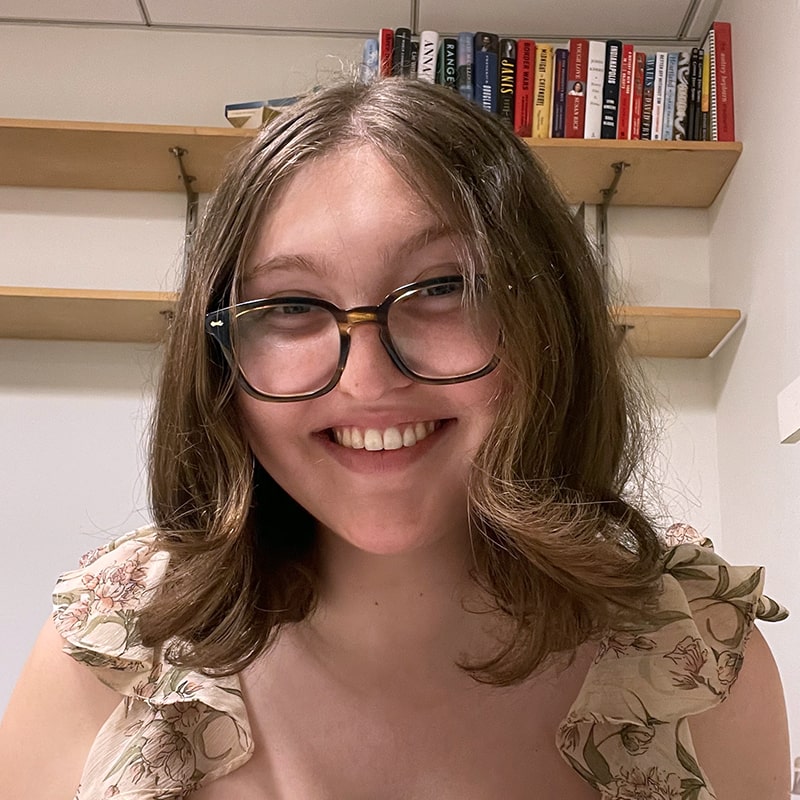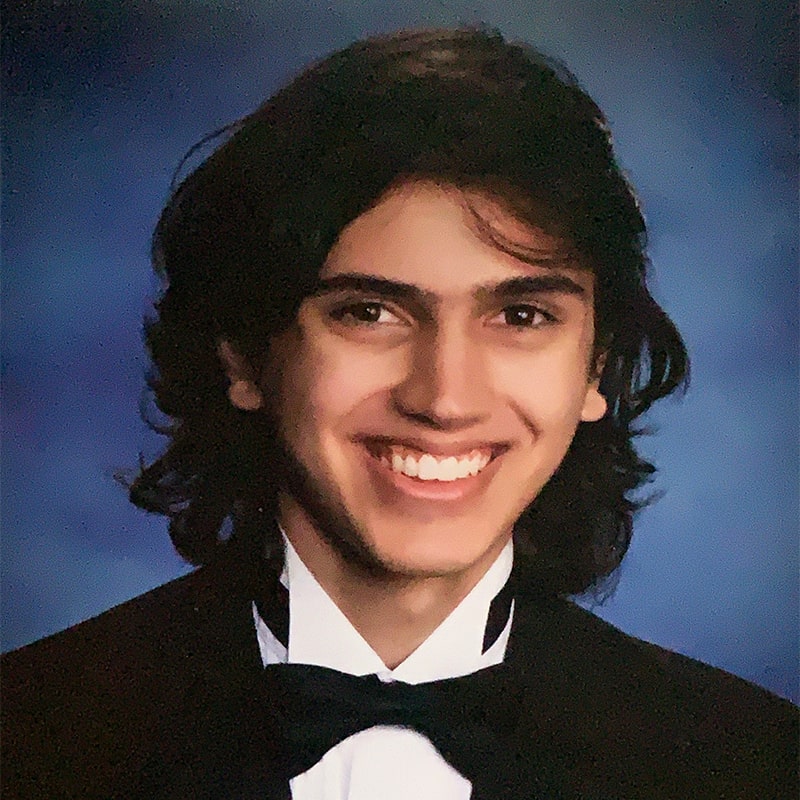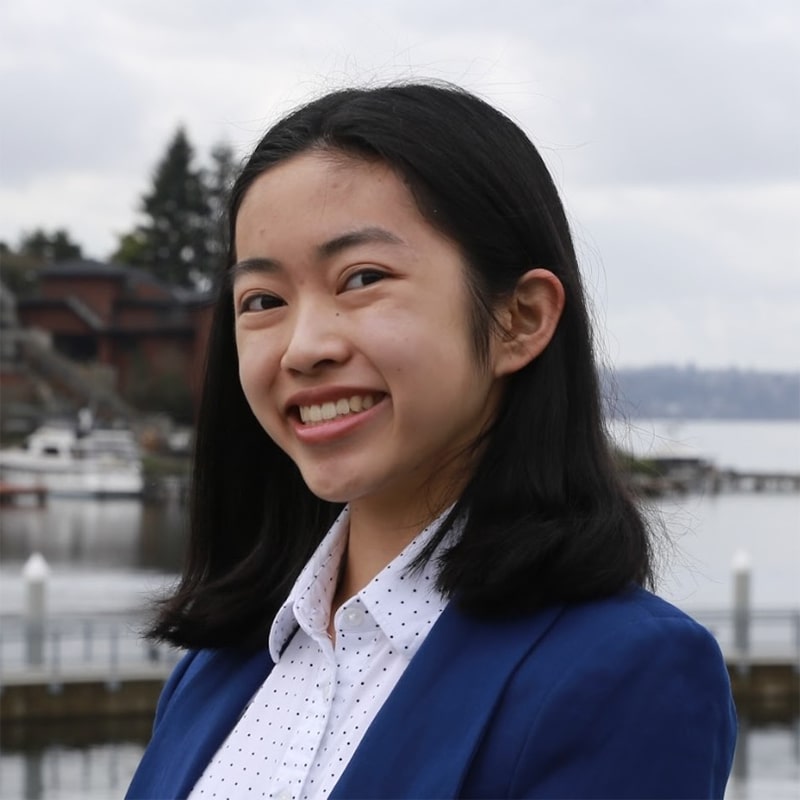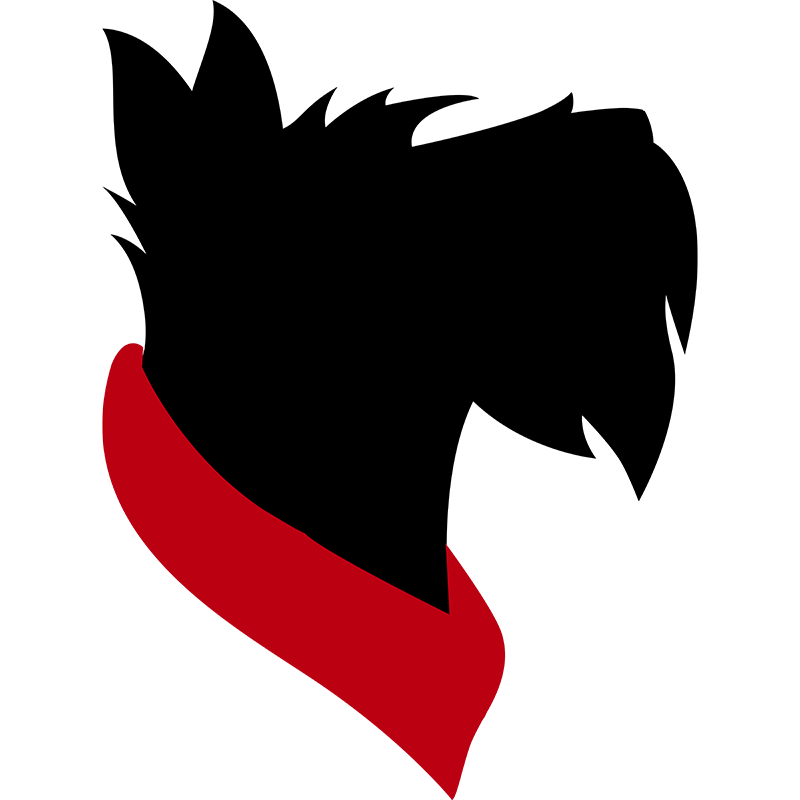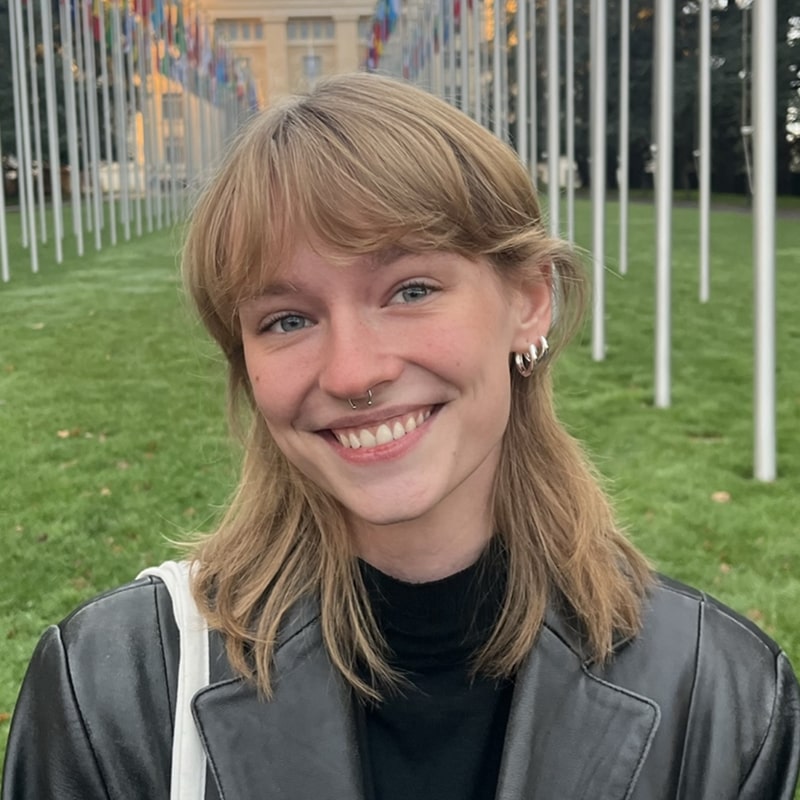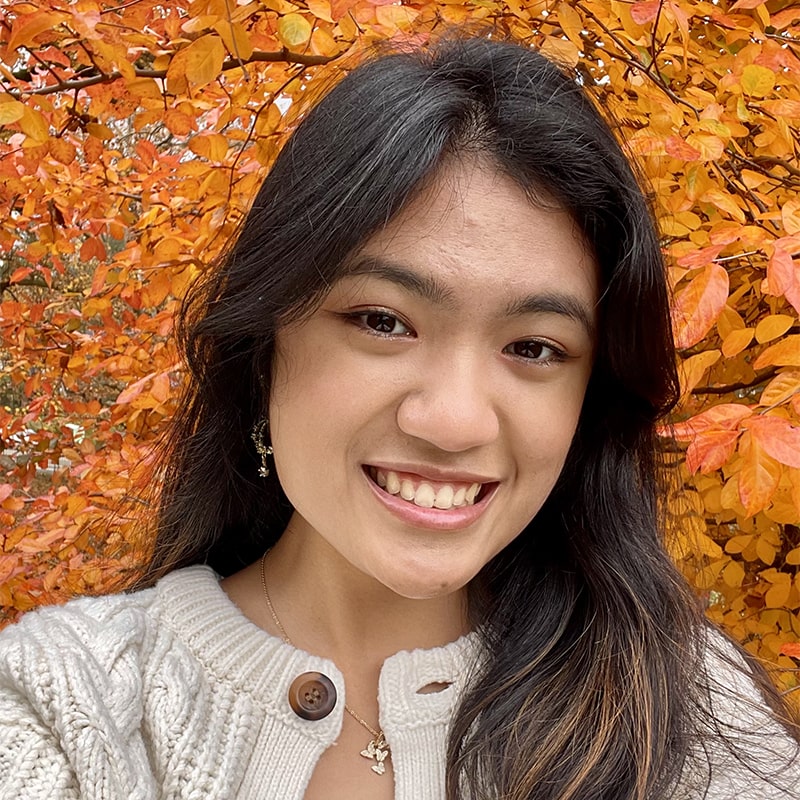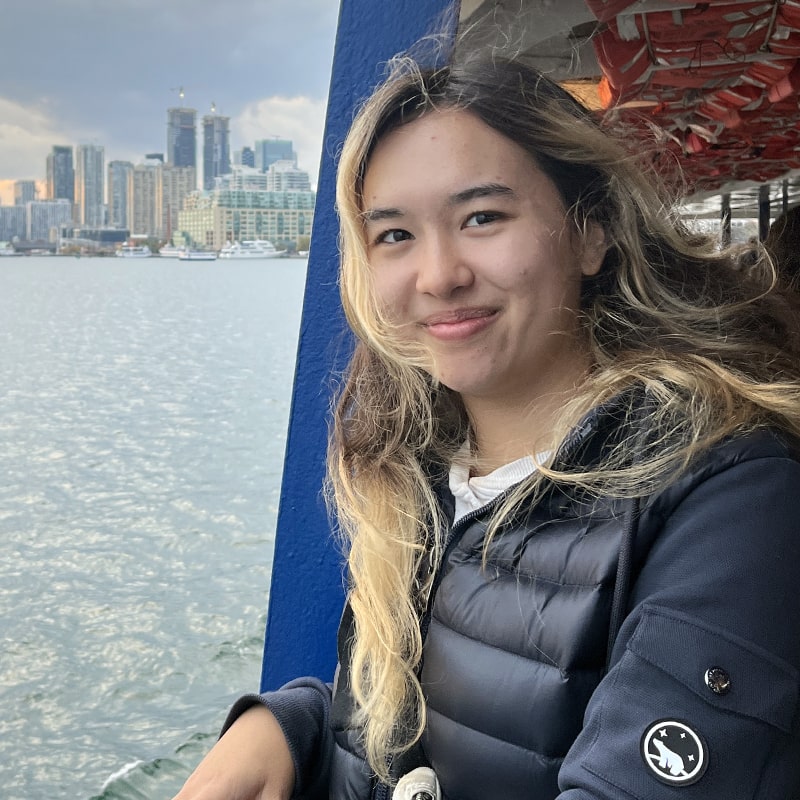
Issue 3 - Fall 2023
From the Editors
“Hope” is the thing with feathers -
That perches in the soul -
And sings the tune without the words -
And never stops - at all -
–Emily Dickinson
Dear WOVEN Readers,
To many of us, the world feels fractured–by war, by disease, by poverty, by injustices beyond measure. The incongruity of our daily lived experiences in overlapping global, multi-national, local, and university communities is dizzying, to say the least. And, yet, this issue’s authors remind us that we live in a world unabashedly full of hope.
The student works featured in this issue–IMRaDs to essays, proposals to film analyses–do more than defy the pall cast by our current condition–they challenge us all to do better, to be better. What unites the work in this issue is their courage to confront problems in our local and global communities with hope.
In this issue, our authors ask their readers to “dwell in possibility”–to borrow another line from Dickinson. They challenge us all to think, feel, and act beyond ourselves and beyond our current limitations. They courageously ask us to use technology to mitigate food insecurity, to criticize the slippery space between consciousness-raising and complicity in the arts, and to listen more closely to emotionally exploitative rhetoric in our political sphere. They bravely empathize with the plight of refugees to reclaim their language, encourage perspective in understanding generational differences in child development, and propose making changes in our larger world by taking action in our smaller communities–including those at CMU.
We at WOVEN are delighted to give space to these exceptional student works, works that would not be possible without the support and dedication of many among our campus community. We are grateful for the support of the Dietrich College GenEd Program, the English Department, and the Writing & Communication Program; for our university faculty’s truly inspired assignment development and their continued mentorship of our authors; and for our campus community’s support of this journal. (Remember, the call for nominations & submissions is always open; please consider submitting your work!)
Most importantly, we are grateful to our authors for their tireless dedication to their own work and for the perspective they offer us all as readers. May our CMU community be inspired by your call to always sing a tune of hope–and never stop at all.
Happy reading,
Courtney L. Novosat & Alan Thomas Kohler
Table of Contents
- Practicing Hope: Macro and Micro Perspectives in Global Studies - Jennifer Bortner
- Not So Beautiful After All: Lucy Walker’s Waste Land - Anand Beh
- Remote Sensing in Sub-Saharan African Agriculture: A Geoportal Schema - Natalie Sarabosing
- Emotional Exploitation: Uncovering the Allure of Climate Change Denial in Florida Politics - Sherry Zheng
Jennifer Bortner
Practicing Hope: Macro and Micro Perspectives in Global Studies
GenEd Course Completed: 79-275 - Introduction to Global Studies
Faculty Mentor: Noah Theriault
In what way do you see the experiences in this GenEd course contributing to your larger goals at CMU and beyond?
This course has helped me better understand the relationship between individuals and their institutions, bolstering my ability to interpret the world around me.
How did the revision process and preparation for publication for WOVEN help you further develop your competencies in writing and communication?
WOVEN's revision process encouraged me to revisit my original essay ideas through new eyes, helping me articulate my arguments more clearly.
Anand Beh
Not So Beautiful After All: Lucy Walker’s Waste Land
GenEd Course Completed: 82-299 - Human Rights and Film in Latin America
Faculty Mentor: Anne Lambright
What were the best parts of the GenEd course you completed?
Professor Lambright's brilliant teaching was the best part, seconded by insightful contributions from my classmates. We learn from each other.
How did the revision process and preparation for publication for WOVEN help you further develop your competencies in writing and communication?
Writing occupies a double space of fastidiousness and artful release. Like a muscle, effective communication must be practiced, maintained, and developed. Like a vocation, effective persuasion requires an act of the heart.
Natalie Sarabosing
Remote Sensing in Sub-Saharan African Agriculture: A Geoportal Schema
GenEd Course Completed: 76-101 – Interpretation and Argument
Faculty Mentor: Alan Thomas Kohler
In what way do you see the experiences in this GenEd course contributing to your larger goals at CMU and beyond?
The research process for this paper allowed me to dive into a type of applied data science that I found both fascinating and socially meaningful. I'm very grateful to have had the opportunity to explore a topic like this early on, because it expanded my view of what machine learning can do, and the versatility of technology. That, in turn, has really influenced the research that I pursue now!
How did the revision process and preparation for publication for WOVEN help you further develop your competencies in writing and communication?
In revision, I was able to revisit my paper with fresh eyes and flesh out sections of it that I didn't have time to do originally. Not only did this help the flow of the paper, but having time away from my work also allowed me to realize how to clarify much of my writing for a general audience. I'm very grateful to my editor and his feedback–he was critical in showing me how to fine-tune my language and polish the writing.
Sherry Zheng
Emotional Exploitation: Uncovering the Allure of Climate Change Denial in Florida Politics
GenEd Course Completed: 76-101 – Interpretation and Argument
Faculty Mentor: Courtney Novosat
What were the best parts of the GenEd course you completed?
The best parts were knowing that logos are not as powerful as pathos in most instances, and learning how to conduct my own research from start to finish.
How did the revision process and preparation for publication for WOVEN help you further develop your competencies in writing and communication?
The process made me more conscious about the needs of the audience, and by thinking in that perspective helped me understand what information to add and remove.
Tatym Rasmussen
Tracing Child Development Perspectives across Generations: How Time Shapes Childhood
GenEd Course Completed: 85-221 – Principles of Child Development
Faculty Mentor: Sharon Carver
What were the best parts of the GenEd course you completed?
My favorite part was definitely doing our observations at the Children’s School. There was a paper for it of course, but I learned a lot from just sitting outside and watching the kids play. We were supposed to connect ways that different ages of children practice developmental mechanisms, so instead of seeing a five year old girl playing with a scarf, I could note how she’s using the scarf to imagine and plan how she’s going to scale this giant play structure for her. While I was imagining how she was imagining things, it was astounding to me that kids learn so much by having so much curiosity about the world around them.
In what way do you see the experiences in this GenEd course contributing to your larger goals at CMU and beyond?
My courses thus far have focused on the global, the local, and the social interactions that mediate the two (formally, I’m majoring in global studies, in a community engagement fellowship, and minoring in psychology). I enjoy studying social movements, social justice, and community activism, and I think children are fundamentally left out of these conversations, even though a lot of the time they are the most impacted. This class allowed me to position how I was raised with political and historical contexts that I've learned in other classes, and it let me reflect on ways we might hold more space for youth to be heard in our world today.
Katrina Florendo
Proposal for a Mental Health App for Carnegie Mellon University Computer Science Students
GenEd Course Completed: 76-270 – Writing for the Professions
Faculty Mentor: Barbara George
What were the best parts of the GenEd course you completed?
Writing for the Professions helped me gain practical skills that I could use when applying for jobs and internships, as well as when communicating about my work later on in the workforce. Through the class, we got to experience a variety of projects, ranging from creating a LinkedIn profile, to writing formal proposals, to giving a verbal presentation. I think the depth and breadth of skills gained from this course will continue to be useful after graduation and beyond!
How did the revision process and preparation for publication for WOVEN help you further develop your competencies in writing and communication?
It was really valuable to get an outside perspective on my work and learn from the WOVEN editors and my professor. It was my first time publishing a paper for a journal, and it was interesting to see how the revision process differed from the usual review process I encounter in academic assignments. Ultimately, I really enjoyed the process and it definitely helped me become a more professional and concise communicator.
Emily Amspoker
Ethnic North Korean War Refugees’ Views on the Intersection of Identity and Language in Colonial and Post-Colonial Korea
GenEd Course Completed: 76-101 – Interpretation and Argument
Faculty Mentor: Megan Heise
What were the best parts of the GenEd course you completed?
In Professor Heise’s class, I enjoyed how we utilized multimedia sources from a variety of genres to better understand the lives of those who live in the liminal space between borders. Through this class, I was able to better synthesize ideas from a variety of sources, receive feedback from my peers, and iterate on that feedback in order to create a piece of writing that could truly communicate what I wanted to express.
In what way do you see the experiences in this GenEd course contributing to your larger goals at CMU and beyond?
This final research paper was my first experience analyzing literature and adding to it by doing (a very informal) interview/survey of my own. The fact that I was able to identify a research gap and try to contribute to that gap gave me confidence to further seek out research opportunities. I now am hoping to further pursue a career in Human-Computer Interaction research beyond CMU, so this class most certainly gave me the skills I needed to start pursuing my goals.
